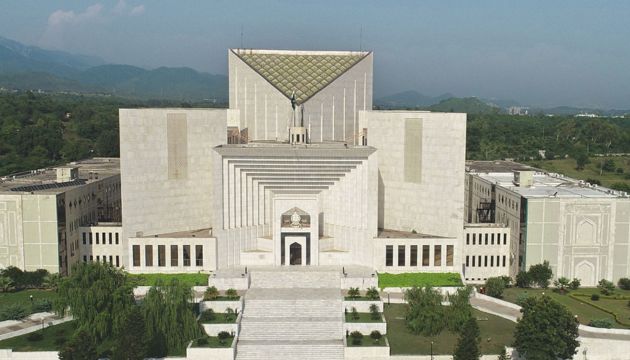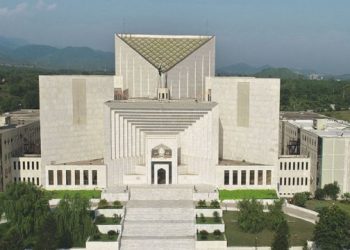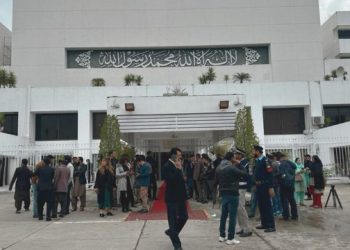ISLAMABAD: The Supreme Court of Pakistan on Thursday suspended the Lahore High Court’s decision to form additional election tribunals as well as the Election Commission of Pakistan’s (ECP) April 26 notification.
As per media report, The apex court’s decision came as a five-member bench heard the ECP’s plea against the LHC’s verdict from last month, which constituted eight election tribunals to hear election petitions regarding national and provincial assembly constituencies.
The bench was headed by Chief Justice of Pakistan Justice Qazi Faez Isa and included Justice Amin-ud-Din Khan, Justice Jamal Khan Mandokhel, Justice Naeem Akhtar Afghan, and Justice Aqeel Ahmed Abbasi.
Today’s Supreme Court verdict is the latest development in the ongoing dispute between the ECP and the LHC over the appointment of judges to election tribunals concerning the February 8 polls.
The ECP further argued that Article 219 of the Constitution did not expressly require the commission to consult with the chief justice of the concerned high court for appointing election tribunals or for allocating territorial jurisdiction to such election tribunals.
The electoral body had moved the SC under Article 185(3) of the Constitution, arguing that under Article 219, read with Article 222(b), the power to appoint election tribunals was vested in the electoral body and could not be exercised by the high court.
Section 140(3) of the Elections Act 2017 only required consultation with the chief justice of the concerned high court on the appointment of sitting high court judges as election tribunals.
However, this consultation did not cover the allocation of territorial jurisdiction to the election tribunals, which was the sole power and prerogative of the ECP, as was evident from Section 140(1) read with Section 151 of the Elections Act 2017, the plea argued.
During today’s hearing, Justice Mandokhail remarked that the electoral body cannot dictate or demand that the LHC Chief Justice provide specific judges.
“You [ECP] cannot choose between the judges,” remarked the judge. Meanwhile, CJP Isa remarked that the LHC Chief Justice was the one who could have decided on the availability of judges for election tribunals.
In today’s verdict, the court criticized the lack of communication between the electoral body and the LHC, noting that the two judges notified by the ECP in response to the six nominated by the LHC Chief Justice were deemed “insufficient.”
Highlighting that the issue arose following the LHC’s establishment of additional tribunals, the SC opted to keep the case pending and deferred the matter to consultation between the ECP and the LHC Chief Justice.














